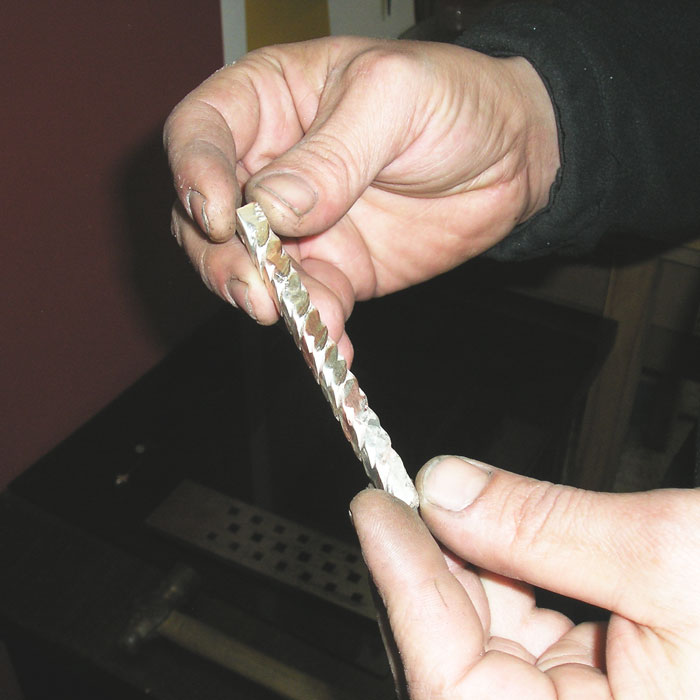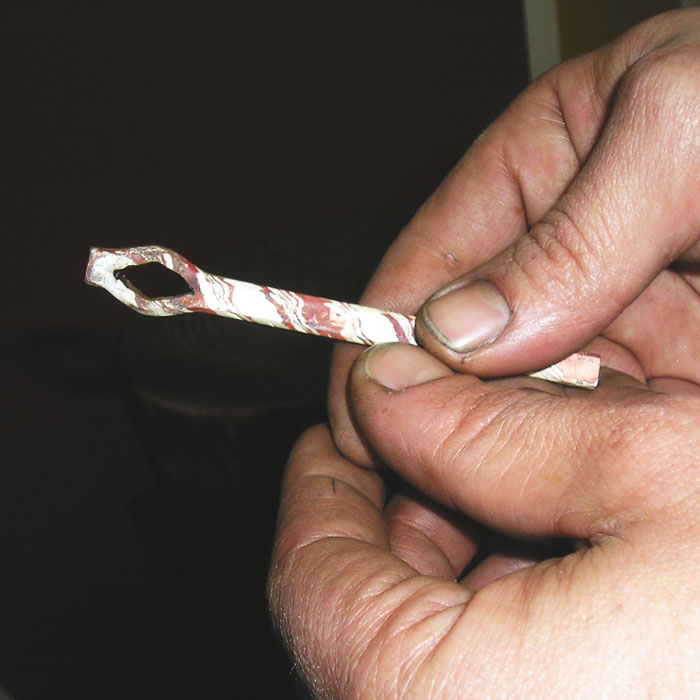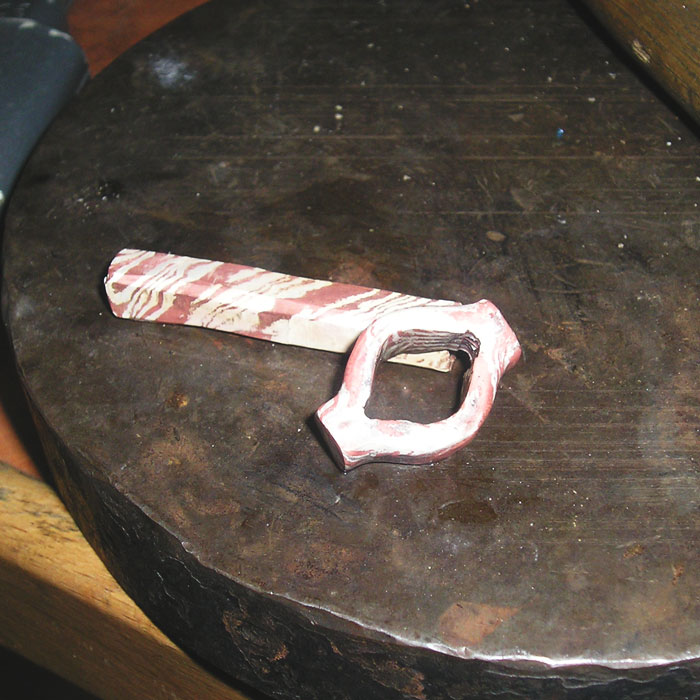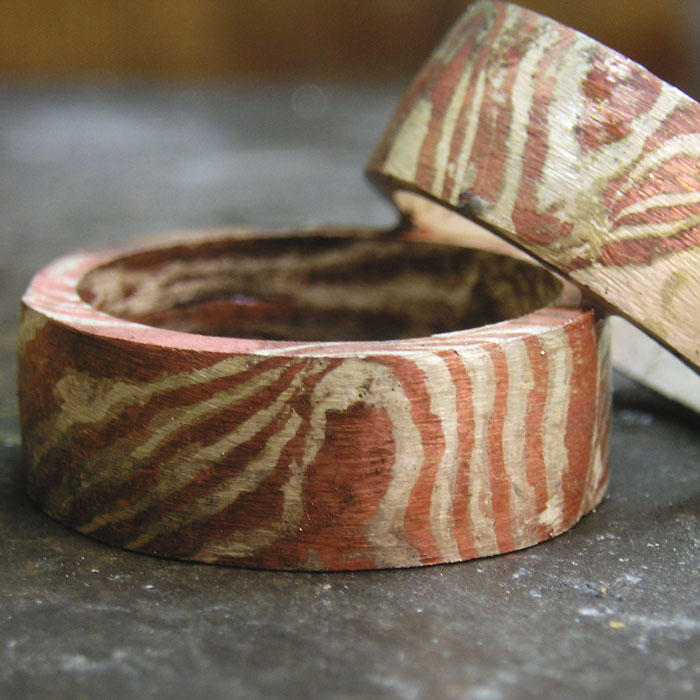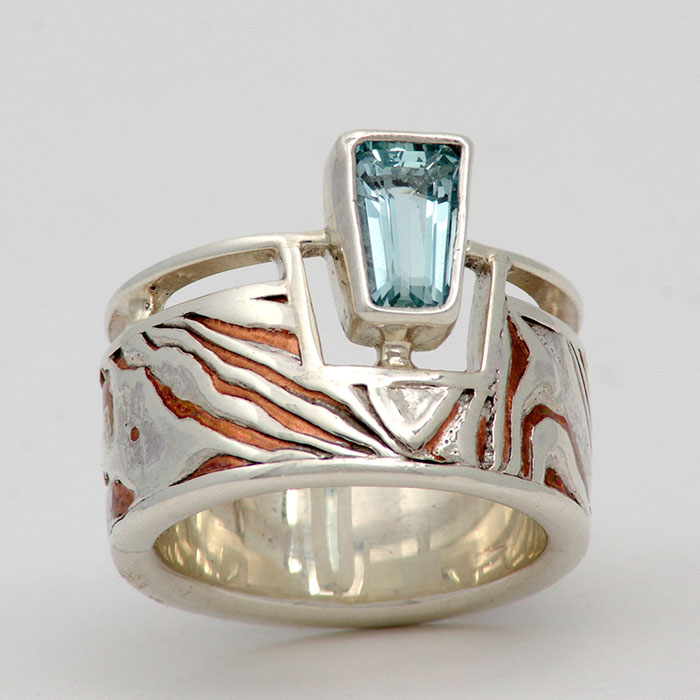
As a workshop, we have gradually specialised in different jewellery and goldsmithing techniques, a number of which are detailed below and can be observed in the pieces illustrated.
Mokume Gane
A Japanese metalworking technique dating from the 16th century which involves fusing nonferrous metals for jewellery purposes.
Kum Boo
A Korean technique in which metals are superimposed without soldering (usually gold on silver), using heat diffusion.
Soldering
Since our pieces are individually made, this technique is essential to their construction.
Mounting
We mount the stones before including them in our jewellery pieces.
Forging and texturisation
The hammer is used to give the metal shape and texture.
Fretwork
All the images included in our jewellery pieces are cut with a jeweller’s saw and saw blades of different thicknesses.
Reticulation
In this technique, the blowtorch is used to create surface textures on silver.
Patina
In some of our pieces we use patinas to age the metal or give it colour.
We also make use of other tools and techniques such as hand-polishing, granulation, incrustation, riveting and micro-fusion. Combining all these skills, we create our jewellery and try to imprint our pieces with a unique personality that sets them apart from mass produced products, reflecting our dedication to creating one-off, personalised pieces.
Materials used
Although contemporary jewellery is open to the inclusion of all types of material, we have chosen to work with ‘noble’ ingredients such as gold, silver, platinum, ebony and precious and semi-precious stones, of which we have a large stock of different types and sizes.
We also make bespoke pieces using the ancient Japanese metal working technique of Mokume Gane, which involves combining different metals by fusing them together and has been used by gold and silversmiths and metalworkers in Japan for over 400 years.
We are thus able to create jewellery in a variety of metals, according to the needs and wishes of every one of our clients.


